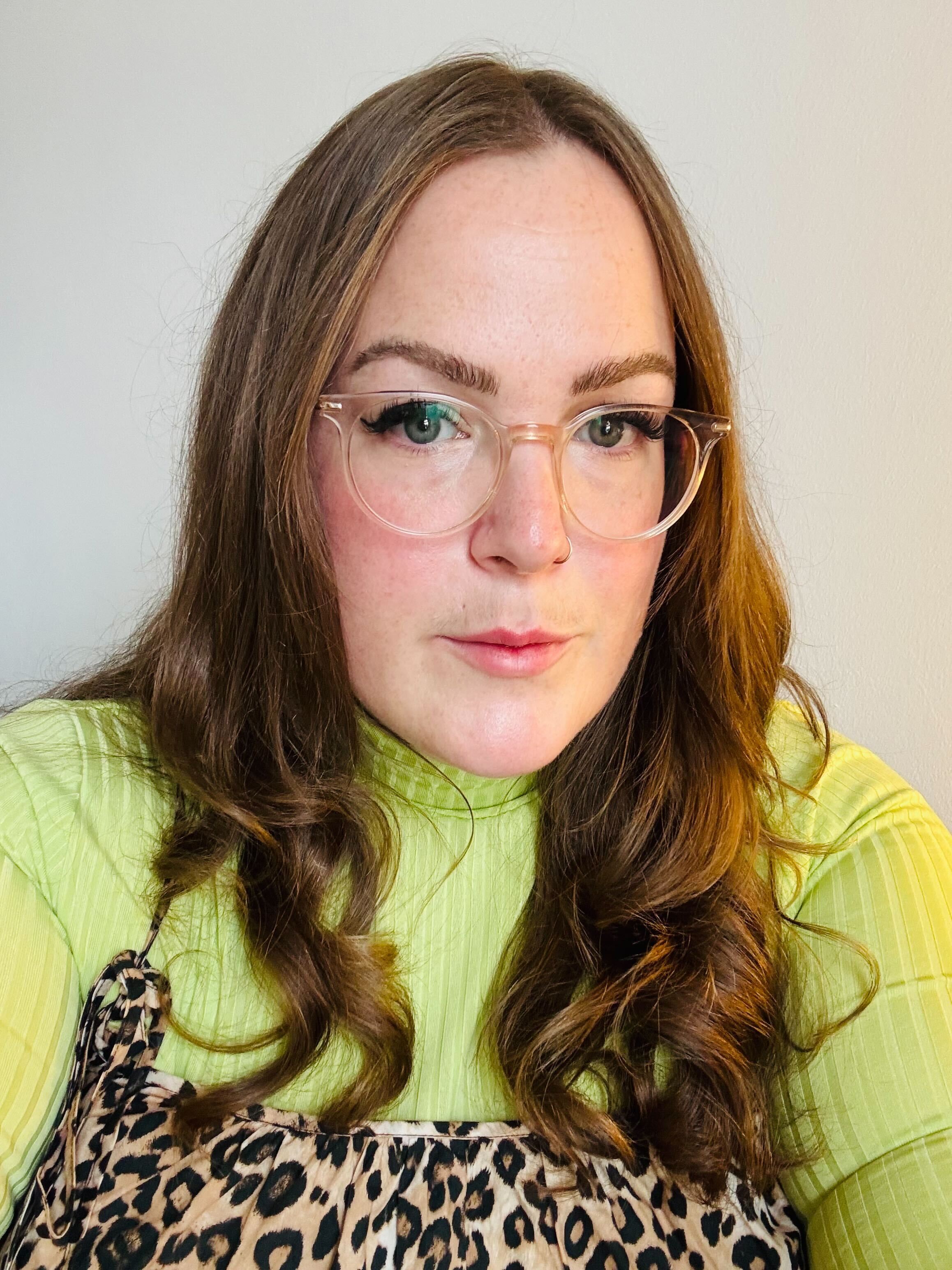Tommy Vext has lead a storied life. Cutting his teeth as part of New York's ferocious hardcore scene, he lead a number of local bands – having to sneak into his own shows due to being still only in high school, and therefore underage – before being picked up by Fear Factory's Dino Cazares to front his new band Divine Heresy in 2006.
The rest, as they say, is history. That stint lead to Vext being recruited to Californian alt-metallers Snot – a position which, he tells us below, turned his life upside down for good. Now, Vext has made a name for himself as one part of "heavy metal supergroup" Bad Wolves; their recent, and tragically timely, cover of The Cranberries' 1994 hit Zombie having just found its way to the top of multiple rock charts all over the world.
Here, Vext talks us through the 10 records which not only shaped his sound, but changed his life forever.

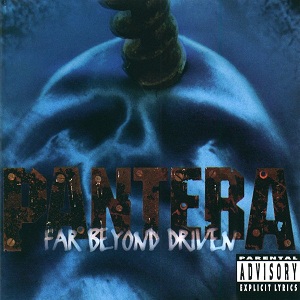
Pantera - Far Beyond Driven (EastWest, 1994)
"The first record I have to say, overall, is Far Beyond Driven. A lot of people in my generation group are more fans of Vulgar Display Of Power, which is a rad record, but this record is me from a lyrical standpoint, and from an aggression standpoint. This record is by far the most high energy, and it's kind of like a diary of Phil Anselmo – the resentments of his life and how he came to be where he was. This record is really the beginning of him coming into being at that level of 'rock star', and then getting sucked into his addiction, which is where being in the band, partying and getting to a certain level of fame started to take a dark turn. The record itself completely encapsulates his journey and the band's journey. This record went platinum even though it was the most underground sound. To me, this album personifies what true heavy metal is. It's supposed to be genre of music that is not acceptable, and for it to go platinum? It was kind of like a battle cry – here's a band who's not safe, that is going to still set the tone."
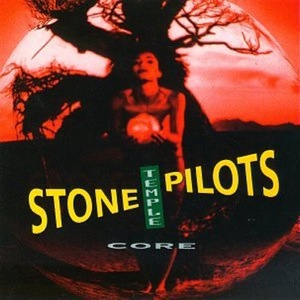
Stone Temple Pilots - Core (Atlantic, 1992)
"I think the first time I got exposed to Stone Temple Pilots was in 1994, when The Crow soundtrack had a song that wasn't on this record – it was called Big Empty. So I got a tape of The Crow soundtrack, then went and bought Stone Temple Pilots' first record – or, first major-label release – Core. And that had Creep on it, Dead And Bloated, Crackerman. I think Scott Weiland was was able to infuse a more melodic sensitivity into those songs, but they were still really driving. Front-to-back, the whole of this record wis a masterpiece, and I think it shows from songs like Dead And Bloated, to Wicked Garden, then really bringing it down to songs like Creep. It was an introduction for me of what a good singer can do, and what a good band can do in having that kind of diversity within one record. That's definitely something that made a lasting impression on me, to always try to strive for in my own music."

Fiona Apple - Tidal (Work/Columbia, 1996)
"This record was a huge for me from a lyrical standpoint. I think in her lyrics she was talking about things that most women weren't talking about at the time. She was outspoken about sexual abuse, the effect it had on her – even in retrospect when I listen to this record, she's really pouring her trauma out into those songs. Even in the songs that are about her relationships when she was older in life, you can see how the trauma translated into her adult relationships. For me, that was something that I really related to. The fearlessness that she has really left another impression on me; realising that no matter what happens, it's important to be honest and to use your artwork to tell the truth and tell your own story. That's a common thread with a lot of the artists that I really fell in love with at an early age, or that developed what my standards were for being a singer or a songwriter."
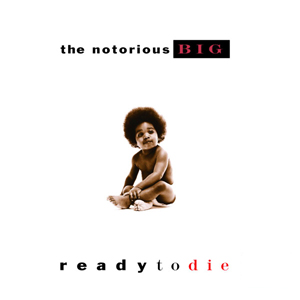
The Notorious B.I.G - Ready To Die (Bad Boy/Arista, 1994)
"I grew up in Brooklyn, so for us, Biggie was this rapper at the height of his career, from a neighbourhood we knew, talking about stuff that we grew up dealing with and things that we knew about, basically having gone from rags to riches. His storytelling was just amazing. It was next level. He talked about the realness of American poverty in the 90s and the late 80s and what he experienced. And he had swag, too – he was not a good-looking guy, and he gave everybody hope, you know what I mean? He worked it, and women loved him, and dudes wanted to be like him, and he was a cool cat. He had a way with words; how he articulated his verbiage, it made it cool to want to read words and extend your vocabulary. That really had a lasting effect. His mentality towards songwriting and storytelling, and the phonetic use of the flow with which he said things, to me was so intrinsic in how I wrote vocals over metal guitar riffs, where traditionally, if I didn't have those influences, it would be more staccato and it would have less flow."
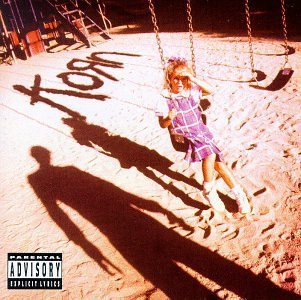
Korn - Korn (Immortal/Epic, 1994)
"Oh, this record was wild. I heard Shoots And Ladders – I don't even know where, it might have been from my cousin who was a metalhead – and it was just so weird, like a Satanic lullaby. I got the record, and I remember just being like, 'these dudes look so gnarly', they looked like Bob Marley And The Wailers, but they sounded like they were playing in hell. I fell asleep the first time I listened to the record – I didn't know about the last track, and Daddy came on and woke me up out of my sleep. I was having a nightmare, and remember being like 'Oh my God, what is this?!' I listened to it over, and over, and over. It was very similar to my experience with Fiona Apple. Johnathan Davis went through a very harrowing experience and his band really supported him, and Ross Robinson's work with him in the studio – they were able to capture years of trauma that were pushed down in that recording session. How that reverberated through the rock community was that a lot of people who were victims of child abuse – all of a sudden, it took the shame away. It was like a public service announcement for the rest of the rock community that maybe you shouldn't pick on somebody, because you don't know what they've been through. That whole album changed rock."
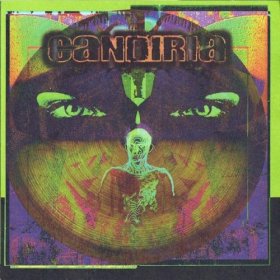
Candiria - The Process Of Self-Development (MIA, 1999)
"These dudes were a local band, I saw them a couple of times. Then they played a show with Machine Head at CBGB's, and they came onstage and their singer was a black guy. Carley came out, they played the first song, and that show to me was the equivalent of how I hear John Joseph of Cro-Mags talking about the first time he saw Bad Brains. For a long time, Candiria were the Bad Brains of our generation. These guys played death metal, jazz, hip hop, hardcore and metal – they didn't even have a bass player at this show at the time! They were basically the kings of New York's metal and hardcore scene during their reign. They just kept breaking down boundaries – they were playing blast beats, which would break down into rap sections, into horn sections; they had hip hop songs on their records, they had rock songs. Watching this band was like '...Oh, we'll never be like them'. Bad Wolves played a show at Gramercy Theatre and the singers of E-Town Concrete, Candiria and Vision Of Disorder were all there. I literally said on stage, 'Every single move I'm doing on stage, I stole from these three guys'. I actually toured with them two years ago, and still, I just don't know where he gets his energy from. He just goes off the entire time, and he's flawless. That record was a huge, huge influence on me."
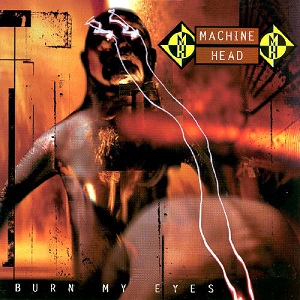
Machine Head - Burn My Eyes (Roadrunner, 1994)
"I remember seeing the Davidian video and the vibe was kind of like a West Coast Biohazard – Robb Flynn had cornrows, they were walking pitbulls, people beating the piss out of each other at their concerts. I really like the social commentary on this record. Almost in the same way Biggie Smalls did, he was talking about life on the street and what it was like, especially in that time. They were from Oakland, and Oakland is basically like the old Brooklyn of the West Coast. We'd go see them, and as soon you'd hear 'Let freedom ring with a shotgun blast' the whole crowd would just erupt. I've seen them tons of times, I was in one of their music videos, I was a super-fan. They were on a tour in 1999, it was Slipknot, Machine Head and Coal Chamber. Coal Chamber had done some song and they had a big hit, and they were playing Roseland Ballroom in New York. Machine Head was playing their set, it was totally brutal, and Robb Flynn was addressing the audience to say thank you and goodnight, and Coal Chamber's crew dropped the Kabuki [band banner], covering the stage while Rob was still talking and everyone started booing. Me and my knucklehead idiot friends climbed up and pulled the kabuki into the crowd, just tore it down. Everybody started cutting it with keys and tearing it up, and everyone was chanting 'Machine fucking Head! Machine fucking Head!' and that was the first time I ever heard that chant. I think it was either Adam Duce or Ahrue, about a year or two ago, posted the whole story about me and my friends, talking about how proud he was of everything I've done in my career in music."
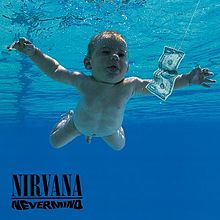
Nirvana - Nevermind (DGC, 1991)
"To me, what Kurt Cobain did was simplify things. The Beatles didn't do that for me, I didn't get into the Beatles until later in life, and I remember just hearing Smells Like Teen Spirit – and I mean, that song was everywhere – and when it kicked in, it just punched it. Their songs – verse chorus verse – it was undeniable. A lot of my metalhead friends were like 'Aw dude, that's whack', but I was like, 'I don't care what you think, this record is incredible'. It was another one of those masterpieces from front to back. I think Stone Temple Pilots planted the idea of that versatility for me, but Kurt Cobain was able to do that in a more masterful way. They went way further left and way further right, in both directions, with their versatility. That was huge. and their songs are so memorable and the lyrics are so – it almost feels like he was writing from another level. There were lines in all those songs where you're just like 'Jesus, how could a person write all of this, how could they think of all of this?'"
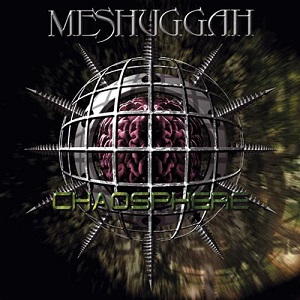
Meshuggah - Chaosphere (Nuclear Blast, 1998)
"I had a buddy I used to trade mixtapes with, and the first song I heard from Meshuggah [was on one of these tapes], from Destroy Erase Improve – Future Breed Machine. That high, squealing guitar noise was like, 'Oh god, its like an alarm clock and everybody's going to die!' It was crazy. And then I got Chaosphere and I actually liked it more. I heard New Millennium Cyanide Christ for the first time and it blew my mind. The time signatures! Then I read the lyrics and I bought all the Meshuggah records that I could, and I literally wasn't educated enough to understand what they were talking about. So I bought a dictionary and a thesaurus to look up all the words, and sat with all the words just to make sure I understood every single thing that they were saying in every single song. Corridor Of Chameleons, I've still never seen them play that song live, they don't play it live because apparently the guitar riff and the bridge is too difficult. From a vocal standpoint, what the singer was doing over the drum pattern was insane. I'd never heard anything like that before, I'd never heard anyone do anything like that out of 4/4 time signature, period. The closest thing was Busta Rhymes. They gave birth to an entire genre of music, there's a whole genre of metal called djent that is basically because of Meshuggah."
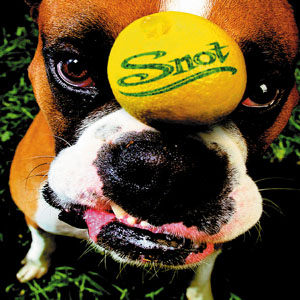
Snot - Get Some (Geffen, 1997)
"For those who don't know, the singer, Lynn strait, he died in a car accident in 1998. I was lucky enough to see them a few times when they came to the East Coast. I think that to me, Snot was like my Faith No More, because they mixed punk with jazz and lounge music and metal, and nothing sounded like that. They didn't sound like anyone, and no one ever successfully repeated what they did. The lead singer, he was like the fastest vocalist at the time. The song Snot came out and I remember hearing it on WSOU which was a college station in New Jersey, and I was like 'What is this?!' Then they came out on tour, and they opened for Soulfly – it was Snot, Incubus and Soulfly – and we'd gotten there early and went completely nuts. It was awesome. Then when I was living in LA in 2008 I had become friends with Mikey and Sonny and they asked me to audition, and I joined the band doing their tours. Then consequently, I think this band has had so much influence on me mostly because I was in that band when I was circling the drain of drugs and alcohol, and Sonny, who's been sober for the past 16 years, he took me in and helped me get sober. So that band was a very, very important part of my life. It's really cool, it's like a big family. To be a kid, and that was one of my biggest influences, to going in and then having this extended family and to be able to change the course of my destiny through knowing these good people, this record should be number one because it's on another level."
Bad Wolves are on tour now. Catch them with Three Days Grace at one of the dates below.
Oct 04: O2 Institute, Birmingham, UK
Oct 05: St. Philips Gate, Bristol, UK
Oct 07: O2 Shepherd’s Bush Empire, London, UK
Oct 08: SWG3, Glasgow, UK
Oct 09: O2 Ritz, Manchester, UK
Oct 11: Poppodium 013, Tilburg, NL
Oct 13: Docks, Hamburg, DE
Oct 14: Palladium, Cologne, DE
Oct 15: Tonhalle, Munich, DE
Oct 17: X-Tra, Zurich, CH
Oct 18: Gasometer, Vienna, AT
Oct 19: Mala Sport, Prague, CZ
Oct 21: Schlachthof, Wiesbaden, DE
Oct 23: A2 Centrum Kocertowe, Wroclaw, PL
Oct 24: Progresja, Warsaw, PL

